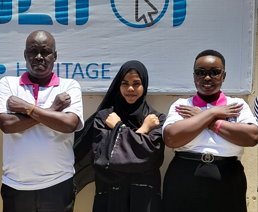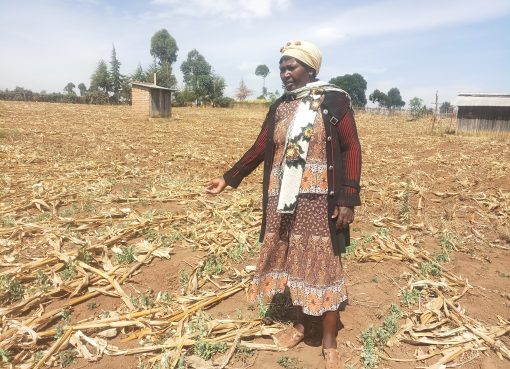A Norwegian Community-based Organization (CBO) with local affiliations in Taita-Taveta County has started giving food vouchers to hundreds of poor households in slums and other low-income areas as part of a social welfare program to mitigate the vulnerable groups against the effects of Covid-19.
ManGO Development is distributing the vouchers on weekly basis where each beneficiary gets a voucher worth sh 500 to buy essential food items from selected shops and supermarkets in the region.
So far, the organization has identified over 120 households families and mapping is still ongoing to identify more who will then join the program.
Ms. Rachael Mwakazi, the director of the CBO, says that the social-welfare program was modeled along the lines of food vouchers given to the poor in developed countries to make sure they had sufficient foodstuff.
The first phase of the project is being implemented in Voi sub-county and targets areas of Mabomani, Embakasi, Mwakingali, Sofia and Mrangi villages in Mbololo. The areas are densely populated by low income earners.
“We are working on how to identify the neediest and give them some support during this time when everyone is affected. If the ordinary people are suffering, what about the most vulnerable amongst us?” she posed.
The project is being implemented through village elders who identify the families that need support. The NGO also is using youth groups affiliated with an artistic expressions like My Tribe Is Art and Talent Nurture Troops (TNT) to map out homesteads that require aid.
After the mapping, the NGO approaches local supermarkets and shops on how the vouchers can be redeemed.
“Supermarkets and shops tell us the times where the beneficiaries can go and be served. They already have the names of the people and we get reports on whether everyone was served,” she explains.
For the old people who cannot make it to the shops, members of the youth group buy the required foodstuffs and deliver it to their homes.
“Some are too frail and cannot go to buy. We have the youth teams identify such people and the supplies are delivered at their homes,” she said.
Amongst the beneficiaries include persons living with disabilities, the elderly, the sick and widows. The two-week old program has avoided chaos often witnessed when distributing food by adopting a strict policy of individual beneficiary targeting. This means that the beneficiary name is on the voucher and cannot be used by an imposter.

The names of the beneficiaries are also distributed to the supermarkets and shops where they food purchases will be done.
“The shops also have the list of the beneficiaries for cross-referencing on which beneficiaries had used their vouchers. When we get reports that a voucher has not been redeemed, we activate our monitoring team to check why the beneficiary has not taken his purchases,” she explained.
The program also is aimed at acting as a catalysts for small shops in the areas where the beneficiaries are located. Ms. Mwakazi says the program had identified shops in the informal settlement areas which will supply the required items to the beneficiaries.
“Most shops are also undergoing a very hard period. The money from these vouchers will give them much needed income,” she said.
Ms. Ethel Munyasa, a women leader coordinating the exercise at Mabomani village, said several beneficiaries have been able to put food on their tables. She disclosed that fear for hunger at a time when economy has slowed down has been replaced with joy and optimism.
“They have food and they can now be able to look at a time this pandemic will be over,” she reported.
The program is also doing deliveries of food supplies for those beneficiaries who cannot get to the shop either due to age or sickness. Members of the youth groups who are mapping out needy homes liaise with the beneficiaries to get their order from shops.
ManGo Development has been engaged in empowerment programs targeting women and the vulnerable groups in Taita-Taveta County since 2009.
By Wagema Mwangi





